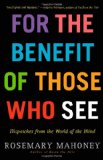
Surprised and relieved that he could see me through all that rheum, I said, "How come?"
"They make you look old. They make you look like an old schoolteacher."
Just around that time I had, in fact, become a schoolteacher of sorts. I had recently taken a job as a volunteer teacher at the International Institute for Social Entrepreneurs in the city of Trivandrum in the state of Kerala in southern India—nearly as far south in India as a person can go without stumbling off the end of Cape Comorin and plunging into the Laccadive Sea. The school was not exactly in Trivandrum but eleven miles outside the city in what seemed to me a deeply insignificant coconut and banana jungle set between a tiny village and a muddy lotus-choked lake called Vellayani. Housed in a walled brick compound of brand-new construction, the school comprised four buildings—an office building, a dormitory, a dining room/kitchen that also served as an auditorium, and a classroom building. I was there to teach English and anything related to it. Communication, pronunciation, elocution, writing of all forms, grammar, punctuation, public speaking, whatever the students needed in this broad area, I was to help them with it. Not having had more than two years of experience with this sort of thing, and that nearly twenty years ago, I was only one step ahead of my students. There were some two dozen students between the ages of twenty and fifty-two. They came from thirteen different countries. There were two from Madagascar, three from Kenya, one from Norway, two from Ghana, one from Japan, one from Colombia, one from Nepal, three from Germany, three from Liberia, one from Sierra Leone, one who got chased out of Liberia as a boy and ended up in Sierra Leone, one ethnically Indonesian man from Saudi Arabia, two technically Chinese people from the Autonomous Region of Tibet, and one irrepressibly cheerful, fast-talking young woman from so extremely far northeast in India she might as well have been Bhutanese.
One of the criteria for admission to this school was that the student be proficient in English. For a couple of the students, that criterion appeared to have been waived. Though they could all put together simple sentences, only a few were truly proficient in English. The Kenyans' national language was English and they were, of course, fluent in it, though their English was full of quirks and Britishisms and their accents were so rich that one had to concentrate carefully to follow what they were saying. The Liberians, for whom English was also the national language, were also very good at it. They knew English, understood it perfectly, but when they spoke it, they were almost completely unintelligible to the rest of us English speakers. No amount of careful concentration could solve this problem. The number of times I had to say "Sorry, what did you say?" to my Liberian students in the first few weeks of meeting them was a source of regret for me. I felt for them. With their nation, their lives, their education, their very psyches disrupted and dismantled by Charles Taylor's nightmarishly weird Liberian civil war, they were not like any of the other students at the school, and they felt their difference and were, I eventually came to realize, quietly wounded by it.
Excerpted from For the Benefit of Those Who See
by Rosemary Mahoney. Copyright © 2014 by Rosemary Mahoney.
Excerpted by permission of Little Brown & Company. All rights
reserved. No part of this excerpt may be reproduced or reprinted
without permission in writing from the publisher.
